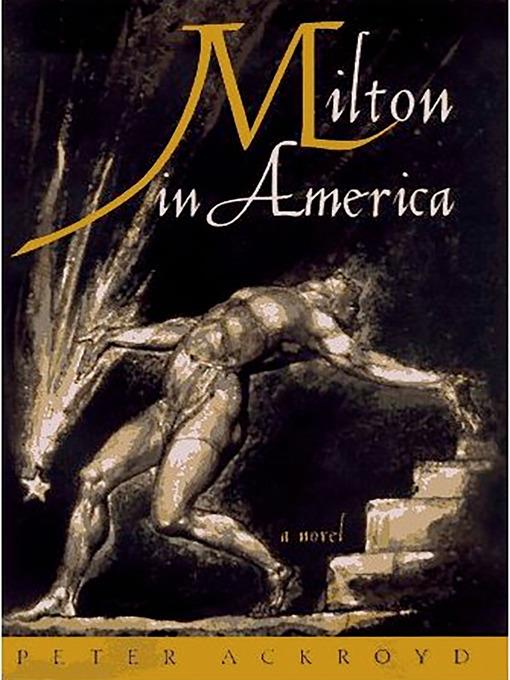
Milton in America
- اطلاعات
- نقد و بررسی
- دیدگاه کاربران
نقد و بررسی

March 3, 1997
Ackroyd (Chatterton, Hawksmoor, English Music) is nothing if not daring, a novelist (and literary biographer) with a remarkable feel for classic English literature and an antic imagination. What he has supposed here is something that could have happened but didn't: the aged, blind John Milton, in disgrace for his anti-royalist sympathies at the Restoration, joins the Puritans fleeing to the New World in the middle of the 17th century. It turns out to be a remarkably fecund conceit, carried off with Ackroyd's accustomed narrative dash and fine period ear and eye. We see the blind Milton, accompanied as his "eyes" by a brash young Cockney he dubs Goosequill, boarding a boat for America, then wrecked upon the shore of what is now Rhode Island and finally coming to rest in a Puritan colony that is promptly named after him. Ackroyd's Milton is a contradictory creature. At first, he's admirably courageous and imaginative, but then, as he is surrounded by paragons of religiosity he secretly despises, he becomes increasingly rigid and intolerant. The worldly, easygoing Goosequill quickly finds common cause with the Indians, later with members of a lively neighboring Catholic community Milton abhors. In the end, the poet's bitter inflexibility leads to war. The problem with Ackroyd's vision, despite the skill with which it is set forth, is twofold: Milton as represented here could scarcely, for all his learning, have been the sweeping and compassionate poet we know; and, in some awkward narrative shifts in which Milton appears to be writing home to a kinsman, we get a thoroughly confused idea of what is happening in his mind. Is he secretly drawn to the Indians and their mysteries? Does he briefly recover his sight, only to lose it again? There are opacities here that are the more regrettable because so much of the novel is fresh and thought-provoking.

Starred review from April 1, 1997
Suppose that instead of returning his attention to the crafting of poetry upon the restoration of Charles II in 1660, John Milton had fled to New England with the idea of creating his own earthly paradise. Suppose, too, that you are among those who see Milton as a strict Puritan and domestic tyrant--a man whose sensuousness T.S. Eliot once claimed was "withered by book learning" and his blindness. Then suppose that you are an author with a reputation as an imaginative, witty storyteller (e.g., The Trial of Elizabeth Cree, LJ 5/15/95). Given such circumstances, you might very well create a novel as compelling and as entertaining as this one. Exuding moral rectitude and self-importance, Ackroyd's Milton becomes an even greater despot than the kings he professes so fervently to despise. As a result, his companions in the wilderness are forced to pay a fearful price. This tale of the dangers of self-righteous pomposity and bigotry is adroitly and wittily crafted (you have to love characters like Humility Tilly and Outspoken Mather--even if your not familiar with Colonial history) and carries with it an important message. Highly recommended for all libraries.--David W. Henderson, Eckerd Coll. Lib., St. Petersberg, Fla.

Starred review from March 15, 1997
Imagine that in 1660, as the monarchy is restored in England, John Milton, 52 and blind, decides to flee to Puritan America, and you'll have the premise for Ackroyd's latest examination of genius. Along the way, Milton, part Old Testament prophet, part performance artist, takes up with a young man, himself on the run, names him Goosequill, and makes him his manservant and secretary. Goosequill, earthy and a bit irreverent, serves as the perfect foil for Milton; their dialogue, at turns intimate, poignant, and tremendously funny, is the book's backbone. Headed for Boston, their ship crashes off the coast, leaving Milton and Goosequill washed up on shore. They finally make it to the Puritan settlement of New Tiverton, where Milton is received as a hero. As expected with Ackroyd, this is not a straightforward narrative: there are changes in narrator and person, some chapters are letters, others journal entries. But perseverance is worth it; Ackroyd's Milton is an extraordinary character whose voice rings out long after the book is closed. ((Reviewed March 15, 1997))(Reprinted with permission of Booklist, copyright 1997, American Library Association.)




دیدگاه کاربران